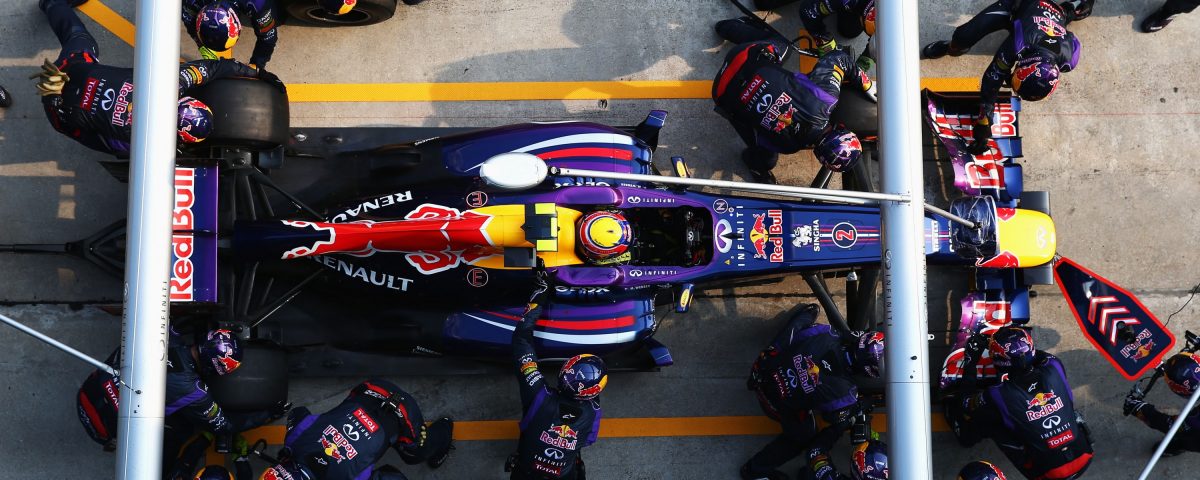The first pit stop in under 2 seconds is with us!
Red Bull Racing’s achievement in completing a pit stop in 1.923s during yesterday’s United States Grand Prix in Austin, Texas, once again highlights the relentless quest for continuous improvement that is a key feature of world class teams.
Not satisfied with claiming their 4th successive World Championship title this year, the guys at Red Bull Racing have maintained a laser-like focus on setting the fastest pit stop times all season. In Malaysia they replaced all four wheels and tyres on Mark Webber’s car in 2.05s, helping him to maintain his race lead, and all year I have been saying that the next goal would be a sub 2 second stop; impossible as that may seem.
Since refuelling was banned in Formula One in 2010 pit stop times have tumbled. The previous requirement to force 60 litres or so of fuel into the car at a regulated 10 litres per second meant that 6 to 7 second pit steps became the benchmark during the last decade. But with refuelling banned the teams focused primarily on changing wheels and adjusting the wings. Five seconds was easy, four seconds less so, but as improvements in the process and technology were made three seconds became possible.
Simple innovations such as allowing the front jack to swivel out of the way while the wheels were changed enabled a very fast release, whilst incorporating the wheel nut within the wheel itself meant that there was just one thing less to go wrong. Finally, teams have become incredibly trusting of their colleagues and drivers, grabbing the wheels as they roll to a halt in order to shave valuable tenths of a second off the time.
Mark Webber’s pit stop at the end of lap 28 of the US Grand Prix was inch-perfect. The Australian stopped his car ‘on the marks’, allowing the team personnel to go to work seamlessly; all four wheel nuts drilled off, the old wheels slipped off and the new wheels on and locked into place, in one near-automatic movement. With 0.48s in which to perform each task, the 12 personnel working the four wheels each delivered peak performance. The result? An extraordinary achievement, a new World Record and another metric by which Red Bull Racing can be measured as the best team in Formula One.

